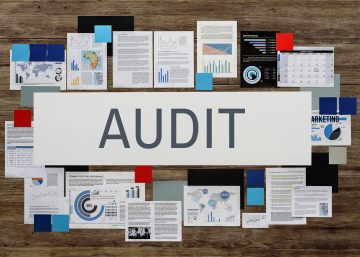Managing office budgets and expenses is one of the most critical aspects of running a successful CA, CS, or tax consultancy firm. Without proper financial oversight, even the most promising firm can face challenges. Whether you’re looking to scale your business, hire more employees, or streamline your operations, effective budgeting plays a central role in all these processes.
Let’s dive into the best practices for managing your office budget and keeping your expenses in check, so your firm can thrive in a competitive market.
Understanding Office Budgeting
In simple terms, office budgeting is the process of forecasting your firm’s revenue and expenses over a given period. It’s a financial roadmap that helps you allocate funds appropriately, ensuring you meet both short-term and long-term goals.
For CA, CS, and tax professionals, budgeting ensures the efficient use of resources, keeps cash flow steady, and prepares the firm for future investments. Proper budget management also enhances the ability to forecast revenue and optimize tax deductions, both crucial for professional firms.
Fixed expenses include recurring costs such as rent, utilities, and salaries, while variable expenses fluctuate based on business activity, such as marketing costs or legal fees. It’s important to differentiate between these to avoid overspending.
Capital expenditures (CapEx) refer to investments made for the long term, such as purchasing new software or upgrading office equipment. These are crucial for scaling your firm but should be balanced against current income.
Your team is one of your most valuable assets. Employee compensation, benefits, and payroll taxes should be carefully planned in your budget to avoid underfunding or overextension.
Even the most trivial-seeming expenses, such as office supplies, can add up. Keep track of these smaller costs to avoid them eating into your budget.
Financial goals should be achievable and measurable. Start by analyzing your past performance and understanding where your firm stands. Factor in your aspirations, be it expanding services or increasing profit margins, and align your budget with these objectives.
Your office budget should not only reflect your short-term needs but also support your long-term vision. For instance, if you plan to open new branches, start budgeting early for future rent, staffing, and additional operational costs.
Manually tracking expenses can be tedious and prone to errors. Automating this process using software can save you time and improve accuracy. Tools like QuickBooks or Xero are excellent for professional firms.
For CA, CS, and tax professionals, specialized accounting software like Tally ERP or Zoho Books is ideal. They help manage expenses while complying with tax regulations.
- Review your firm’s financial history.
- List all potential income sources.
- Forecast future revenue based on past performance.
- Itemize all expenses.
- Balance income and expenses.
Avoid overestimating revenue or underestimating costs. Another common mistake is neglecting to adjust the budget as circumstances change. Be flexible and revise your budget regularly.
Unexpected costs, such as legal fees or equipment failures, can throw off your budget. Set aside an emergency fund, ideally 10-15% of your total budget, to cushion these unforeseen expenses.
A contingency fund is a financial safety net. In addition to your emergency fund, this is designed to cover any budget shortfalls or slow months.
Always look for opportunities to renegotiate contracts with service providers. This could include your internet provider, office supplies vendor, or even your landlord.
Using cloud-based software, automating client management, and implementing online billing can significantly reduce operational costs. Automation frees up time and resources, allowing you to focus on more strategic activities.
Consider adopting a hybrid or fully remote working model. This can reduce overhead costs such as office rent and utilities while increasing employee flexibility.
Review your budget quarterly or at least twice a year to ensure it aligns with your business performance. Regular reviews allow you to spot spending patterns that need correction or adjustment.
Use your budget reviews to identify recurring spending patterns. Are you consistently overspending on office supplies? Perhaps it’s time to cut costs by finding a cheaper supplier or eliminating unnecessary expenses.
As tax professionals, you’re well aware of the importance of deductions. Office supplies, software subscriptions, and even client meals can be deducted from your taxes, reducing your overall expenditure.
Invest in areas that offer tax benefits. For instance, purchasing energy-efficient equipment can result in tax credits, saving your firm money in the long run.
Frequent communication with your accounting team helps in real-time budget adjustments. An efficient collaboration ensures your expenses align with your income projections.
Hold monthly or quarterly budget meetings to keep all departments informed. Encouraging feedback from staff can also bring fresh cost-saving ideas to the table.
Some services, such as IT management or marketing, may be more cost-efficient when outsourced. Conduct a cost-benefit analysis to determine whether keeping services in-house or outsourcing them makes more financial sense.
Consider outsourcing non-core activities like payroll processing, HR management, or IT support. This allows your internal team to focus on more critical tasks that directly impact your firm’s success.
Project your firm’s growth over the next 1-3 years and adjust your budget accordingly. This may include planning for additional office space, staff, or increased utility costs.
Technology plays a pivotal role in CA and tax firms. Plan for future upgrades by setting aside part of your budget for new software, cybersecurity measures, and system maintenance.
Cash flow refers to the movement of money in and out of your business. Managing it effectively ensures you have enough capital to cover short-term obligations while allowing for long-term investments.
Invoicing promptly, maintaining a reserve of liquid assets, and managing expenses will help you maintain a healthy cash flow. Automating payments and collections can also streamline this process.
Conclusion :
Managing office budgets and expenses is an ongoing process. By setting realistic goals, tracking expenses diligently, and continuously adjusting your budget, your firm can not only survive but thrive in today’s competitive market. Remember, smart budgeting is the key to financial stability and growth for your firm.
FAQs :
Q.1 How often should I review my office budget?
Reviewing your budget quarterly ensures it stays aligned with your firm’s financial performance.
Q.2 What’s the best way to handle unexpected expenses?
Building an emergency fund is essential to cover unanticipated costs without disrupting your cash flow.
Q.3 How can I save money on office expenses?
Renegotiate vendor contracts, utilize cost-saving technologies, and consider remote working models.
Q.4 Can I claim office equipment as a tax deduction?
Yes, office equipment such as computers, printers, and furniture can often be deducted.
Q.5 What software is best for expense tracking?
Tools like QuickBooks, Tally ERP, and Zoho Books are recommended for CA, CS, and tax professionals.
Q.6 How do I create a sustainable office budget?
Start by analyzing past expenses, forecast revenue, and set realistic financial goals.
Q.7 What is a contingency fund, and do I need one?
A contingency fund is a financial buffer to cover budget shortfalls or slow months. It’s highly recommended.
Q.8 What are fixed and variable expenses?
Fixed expenses remain constant, like rent, while variable expenses fluctuate, like utilities and marketing costs.
Q.9 Is outsourcing more cost-effective than hiring in-house?
It depends on the service. Outsourcing non-core tasks can be more affordable for many firms.
Q.10 What are the tax implications of capital expenditures?
Capital expenditures can be depreciated over time, offering tax benefits while allowing for long-term investments.
Interested in improving your customer satisfaction, increasing client retention, preventing revenue leakage, maximizing efficiency and effectiveness? Register for a demo of ERPCA, India’s first multi-lingual, mobile-app based practice management software for CA firms, tax consultants, financial services advisory firms and more. Better still, sign up for a 14-day free trial of ERPCA and see for yourself the wonderful features and benefits of this software.










